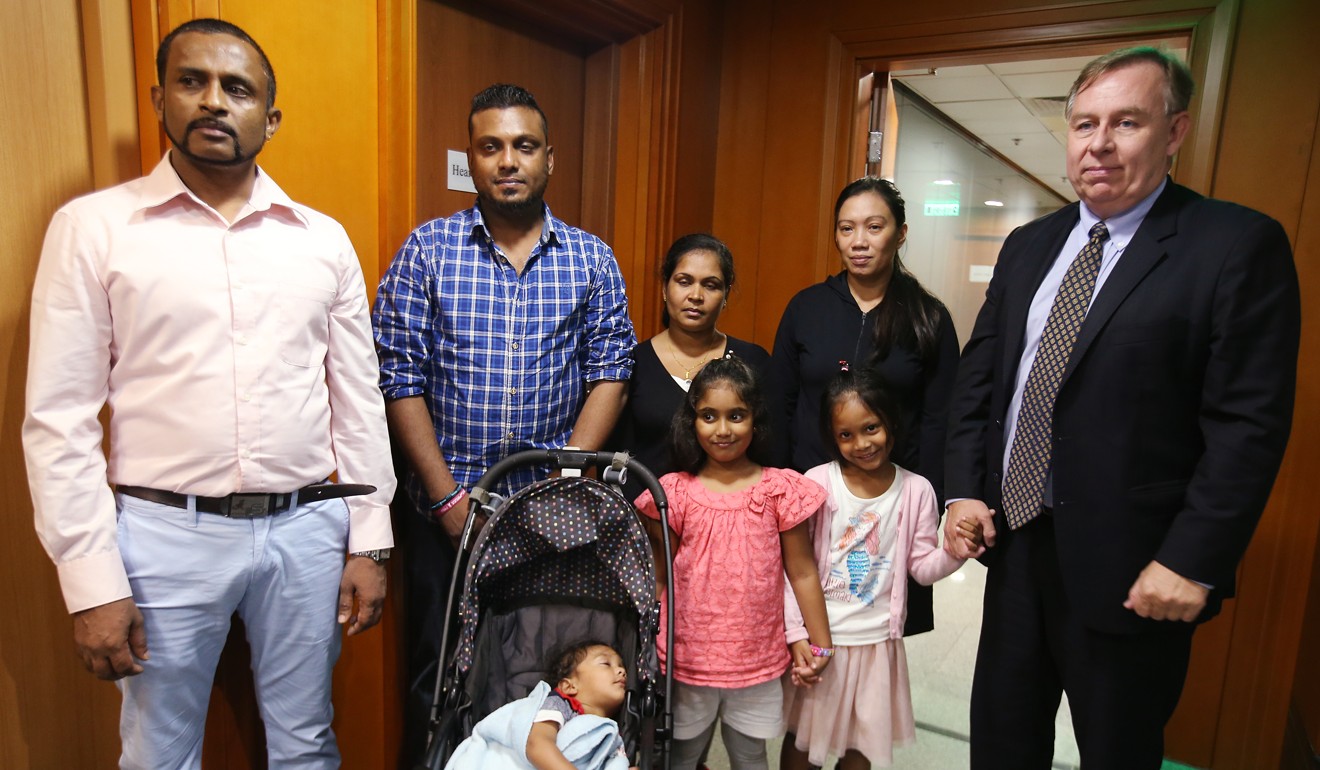
Asylum seekers who housed Edward Snowden in Hong Kong claim police illegally targeted them but force denies doing so
Lawyers for the group, which includes a former Sri Lankan soldier, say Hong Kong police investigated them rather than their report that Sri Lankan authorities were hunting them down in the city
But Hong Kong police, the legal team said, arrested the asylum seekers instead and suggested their story was made up, an allegation that the police denied in a brief and vague response to the Post on Thursday.
“If Hong Kong ever wanted to show the world that the rule of law is eroding, it could not have acted in a better way,” Marc-André Séguin, one of the Montreal-based lawyers who set up an NGO in Quebec named For The Refugees to support the asylum seekers, said.

Séguin, who is currently visiting Hong Kong, added: “The individuals who witnessed the presence of the Sri Lankan police in Hong Kong were in several instances taken … and interrogated for a number of hours without the presence of a legal counsel and without the possibility to leave.”
Arrest of ex-CIA agent fuels Hong Kong’s reputation as spy hotbed
“We have independently verified at least two instances, in which police attempted to coerce witnesses into false testimonies, and in at least one instance police encouraged an asylum seeker to get a passport under a false identity and apply for asylum in another country.
“We are talking about the Hong Kong police targeting asylum seekers who are part of the chain of evidence and who are vulnerable.”
When Séguin’s claims were posed to police, a spokesperson responded in an e-mail to say: “Police has finished investigation of the allegation. It was concluded that there was no concrete evidence to support the allegation and there was no arrest made throughout the investigation.”
The spokesperson added that under the city’s mini-constitution, overseas law enforcement agencies were not allowed to carry out their duties here and if they did, local police would act “in accordance with the law”.
A senior police source told the Post that crime squad officers had investigated a complaint made by one of the asylum seekers that Sri Lankan police were in the city. But officers found no evidence to support the claim.
“More than 10 people including the complainant were interviewed by police, but none of them told us they witnessed the presence of the Sri Lankan police in Hong Kong,” the source said.
“They told our officers they heard this allegation from others. Our probe indicated it was only hearsay.”
He stressed that the asylum seekers who were interviewed were not treated as suspects.
Are Hong Kong’s Edward Snowden chickens finally coming home to roost?
The group of asylum seekers who housed former NSA contractor Snowden after he leaked sensitive US intelligence files in 2013 includes a former Sri Lankan soldier, Ajith Pushpakumara, and a family of four from the same country – Supun Thilina Kellapatha, his wife Nadeeka Dilrukshi Nonis and their two children.
If Hong Kong ever wanted to show the world that the rule of law is eroding, it could not have acted in a better way
Snowden was also sheltered by a Filipino asylum seeker, Vanessa Mae Rodel, who has a five-year-old daughter.
The Hong Kong government rejected their protection claims in May last year. They filed appeals, but no decisions have yet been made.
US whistle-blower Edward Snowden slams Hong Kong government for ‘campaign’ against lawyer of families who housed him
If the Torture Claims Appeal Board rejects their appeals, asylum seekers have three months to request a judicial review at the High Court.
Separately, they are waiting for the Canadian government to screen refugee claims filed on their behalf last year.
“It’s increasingly clear our clients are specifically targeted and that disturbing methods are being deployed by the Hong Kong police. We hope Canada is paying attention,” Séguin said.
“Certainly Hong Kong does not seem inclined to give them any form of protection. Canada has not yet made a decision, but we are confident that they will do the right thing. Our concern is if Canada will do the right thing in time.”

